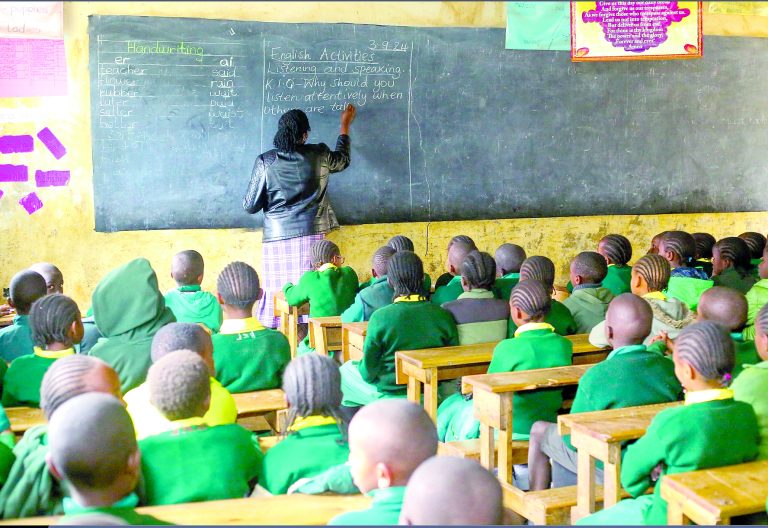Education to get the lion’s share of 2025/26 Budget estimates
By Faith Macharia, June 12, 2025The education sector has secured the largest share of the national government budget for the 2025/26 financial year, with a total allocation of Ksh701.1 billion, representing 28.1 per cent of the budget projections.
This allocation covers a broad range of critical areas, including capitation for primary, junior and senior secondary schools, technical and vocational education and training (TVET), universities, teacher and lecturer remuneration, as well as the development of school infrastructure.
However, despite the sizable budget, the Parliamentary Education and Research Committee has raised concerns over significant funding gaps that threaten key functions within the sector.
In a report reviewing the budget estimates for the upcoming fiscal year, the committee has highlighted urgent issues that require immediate attention from the Treasury and relevant government agencies.
“The Committee noted that no funds had been allocated for examination invigilation and management in the 2025/26 financial year, raising concerns among education stakeholders,” the report stated.
They emphasised that national examinations are considered a matter of national security, demanding consistent and adequate funding to safeguard their integrity.
Substantial deficits
In this fiscal year, funding for exams was provided only through a supplementary budget on an emergency basis, underscoring the critical nature of this issue and the necessity of a structured approach in future financial planning.
According to the report, the lack of dedicated funding for this critical function has generated uncertainty within the education sector, with stakeholders calling for a structured and guaranteed financial provision to ensure the smooth administration of examinations in the future.
The committee also noted substantial budget deficits within the Department of Higher Education, particularly in student-centred programmes such as loans and sponsorships under the new funding model.
The shortfall threatens to disrupt university operations, potentially impacting academic programmes, institutional resources, and student welfare.
“The financial gaps could restrict access to scholarships and increase the financial burden on students, undermining higher education’s role in national development,” the committee report stated.
It urged the government to establish sustainable funding mechanisms to support both universities and students effectively.
The committee proposed that there is a need to consider students in the Teachers Training College in the HELB funding, stating that they are also eligible.
They further stated that there is a need for higher allocation towards basic education, especially for infrastructure.
It was further submitted that there is a need to ring-fence funding for the school feeding programme.
It was also submitted that there is a need to enhance funding for exams and certification, quality assurance and standards, as well as KNEC.
“The government has allocated at least Ksh700 million in FY 2025/26 for infrastructure improvement and rehabilitation in public primary, junior schools, and secondary schools,” the report noted
Furthermore, the government is supporting learners in vulnerable areas through the school feeding programme with an allocation of Ksh3 billion in FY 2025/26.
The allocation for examination and invigilation in FY 2025/26 is Ksh5.9 billion, which is channelled through KNEC.
Confirming interns
The transfer of the National Council for Nomadic Education in Kenya (NACONEK) to the State Department for Arid and Semi-Arid Lands (ASAL) was also flagged due to the absence of a formal Executive Order.
This omission may pose administrative and operational challenges for the agency, which plays a vital role in supporting vulnerable learners in nomadic communities.
While the Teachers Service Commission (TSC) has received funding for teacher promotions, the committee criticised the existing promotion criteria as flawed and inconsistent.
These disparities could undermine fairness, affect morale, and ultimately impact education quality.
The committee called for a transparent and merit-based promotion framework to restore equity and motivation within the teaching profession.
Additionally, the committee observed that although Ksh4.8 billion has been allocated to recruit 20,000 teachers on internship, there was no provision for converting current interns engaged in January 2025 to permanent employment.
This gap may lead to a backlog of interns awaiting conversion, further straining the sector’s human resource capacity.
